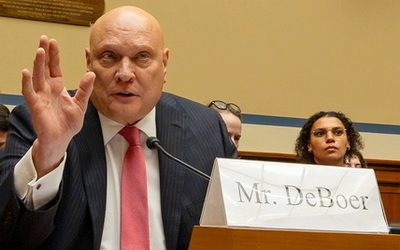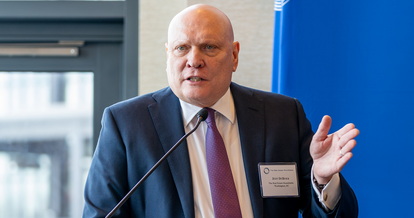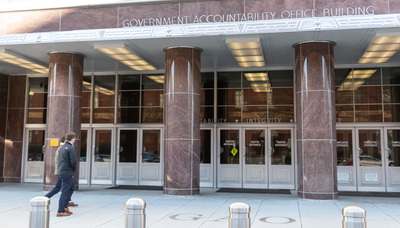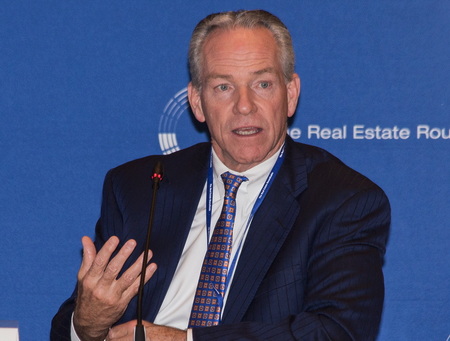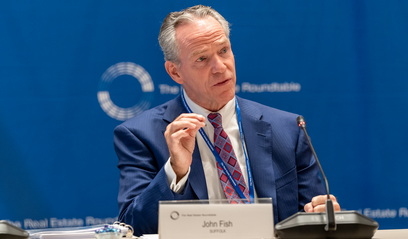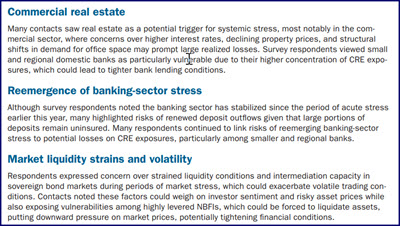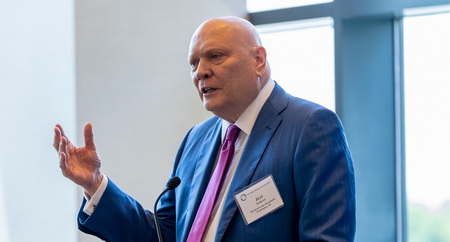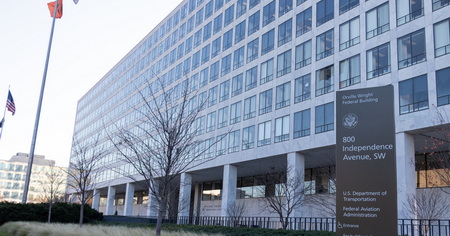
This week, Sens. Mitt Romney (R-UT) and Joe Manchin (D-WV) introduced the Back to Work Act of 2024 (S. 4266), which would require federal employees to spend 60% of their work hours in the office, a slight increase from the 50% in-office policies at many agencies. The Roundtable supports various efforts by policymakers to enact workplace return policies for federal workers. (Romney-Manchin news release and The Register-Herald)
Senate Bills
- The bipartisan Senate bill, in addition to the40% cap on remote work within a federal employee’s pay period, would also require agencies to report on the productivity and potential negative effects of their employees’ telework arrangements. (Government Executive, April 30)
- A separate bipartisan Senate bill introduced on April 3 would increase oversight of federal telework policies after a recent report showed government agency headquarters in Washington, DC are using an average of 12% of their office space. (Senate Committee news release and Public Buildings Reform Board report).
- The Telework Transparency Act (S. 4043) from Sens. Joni Ernst (R-IA) and Gary Peters (D-MI), chairman of the Homeland Security and Governmental Affairs Committee, would require agencies to gather information on how telework impacts agency performance and federal property decisions. (Government Executive, April 8 and Federal News Network, April 3)
House Efforts
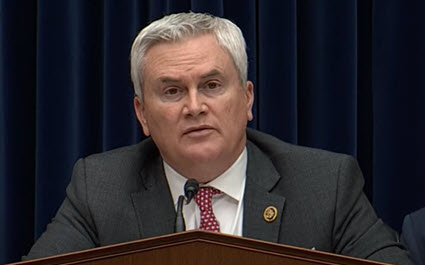
- A Biden administration official testified last week before the House Oversight and Accountability Committee that federal agency workers should spend at least half of their working hours at their office sites. (Committee hearing, April 30)
- “[For] office workers, the place where there is consistency across agencies, we’ve been clear that our expectation is for agencies to be achieving at least 50% [in-person work], while giving them flexibility for how best to deliver based on their diverse mission space. That’s consistent with where the private sector is, and we’ll continue to adjust as needed,” said Office of Management and Budget Deputy Director for Management Jason Miller. ( Government Executive, April 30 and Miller’s written testimony)
- Committee Chairman James Comer (R-KY) responded, “At the onset of the COVID pandemic, massive federal employee telework was a justifiable necessity, but that necessity ended a long time ago.” (Committee hearing, April 30)
- Rep. Comer is the lead sponsor in the House of the Stopping Home Office Work’s Unproductive Problems (SHOW UP) Act (H.R. 139), a bill that requires each executive agency to reinstate the pre-pandemic telework policies.
The Roundtable View
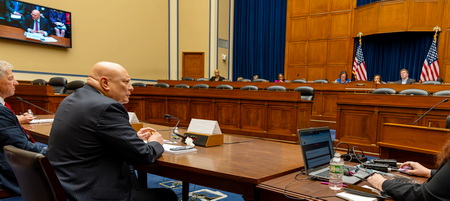
- Roundtable President and CEO Jeffrey DeBoer, above, commended the efforts of Chairman Comer before a House subcommittee hearing last week, noting that the SHOW UP Act passed over a year ago and should be enacted into law. (Roundtable Weekly, Oct. 20 and Feb. 3, 2023)
- DeBoer emphasized during the April 30 hearing that a return to in-person work is critical for the health of our cities, local economies, tax bases, and small businesses. “While private sector office occupancy is slowly picking up, the federal office workforce is behaving as if the pandemic still exists. This is despite President Biden’s call for agencies to return to pre-pandemic workplace practices,” DeBoer testified. (Roundtable Weekly, May 3)
- The Real Estate Roundtable has also urged members of the Senate and President Biden to end the “active encouragement of remote working for federal employees” and for federal agencies to return to their pre-pandemic workplace practices. (RER letter to the Senate, April 12, 2023 and RER letter to President Biden, Dec. 12, 2022)
The Roundtable will discuss the evolving remote work issue during its all-member June 20-21 Annual Meeting in Washington, DC.
# # #

